Why the United States should reduce its unconditional support for Saudi Arabia and the bleak outlook for Iran Nuclear Deal talks. Talia Baroncelli speaks to Trita Parsi, executive vice president at the Quincy Institute for Responsible Statecraft, a transpartisan think tank.
Talia Baroncelli
Hi, I’m Talia Baroncelli, and you’re watching theAnalysis.news. I’ll shortly be joined by Trita Parsi to speak about U.S. foreign policy in Saudi Arabia as well as the protests in Iran. If you enjoy this content, please go to our website, theAnalysis.news, and hit the donate button, that way, we can continue to make this sort of content. You can also subscribe to our newsletter as well as our YouTube channel. Back in a bit.
Joining me now is Trita Parsi, the executive vice president at the Quincy Institute. Thank you so much for joining me, Trita.
Trita Parsi
Thank you so much for having me.
Talia Baroncelli
So you’ve written a lot on Saudi Arabia and U.S. foreign policy in the Middle East. I was wondering if we’ve missed an opportunity for the Biden administration to cut ties and cut its support for Saudi Arabia, given what’s been going on with oil production and skyrocketing costs of oil in October.
Trita Parsi
Yes, although I wouldn’t necessarily advocate for there to be a cut. I think there definitely needs to be a rebalancing of this relationship because the Saudis have been able to get away with a tremendous amount of mischief. The war in Yemen is just the beginning or the end of it. The Biden administration came in blazing, promising to turn Saudi Arabia into the pariah that they are, and promised to end the war in Yemen.
Instead, two years into it, we have now seen that even after Biden said that the Saudis are going to pay the price for what they did to the Biden administration on the oil side, we have seen absolutely no consequences for the Saudis. The administration, in fact, is further trying to move closer to Saudi Arabia. I think this is extremely unfortunate because I think we’re seeing a bad relationship getting worse, an imbalanced, unhealthy relationship getting worse, which will come back and bite the United States and the region in the behind, just as much as it did when the United States, unfortunately, expressed its opinion and gave its green light to the war in Yemen.
It’s been a complete disaster. I know many of the U.S. officials who were involved in it regret that decision. I think what has happened in the last two years is also something that the U.S. is going to regret because, as you pointed out, it is a missed opportunity.
Talia Baroncelli
Right. There are some who say that if the U.S. were to sever ties, or at least reduce its support for Saudi Arabia, that would push the Saudis closer to China and to Russia. Is there any validity to that argument?
Trita Parsi
Well, I think there is a likelihood that the Saudis would gravitate more toward Russia and to China under that circumstance. At the same time, the Saudis are doing that right now. They have significantly moved closer to the Chinese and the Russians. They are now saying openly that they’re going to be doing trade in oil but not use the [U.S.] dollar. So they’re part of the de-dollarization. We’ve seen their position on Russia.
The idea that if the United States actually were to play hardball with the Saudis, they would actually worsen the situation, I’m not convinced by. I think, on the contrary, the lack of a response from the Biden administration, the last of the cost of the Saudis after they have engaged in many, many problematic policies and decisions, is frankly motivating the Saudis that they can get away with it and they can do more of it.
Now, there’s a part of this that I also think that we should take into account, which is from a Saudi perspective, they are, like many countries in the world, moving. They’re adjusting their policies and acting as if the world is already multipolar. In my view, it is. So this is not a uniquely Saudi thing. They’re hedging their bets, and the idea that the United States would cause them not to hedge their bets by being extra kind to them and turn an extra blind eye to their negative policies, I find completely unconvincing. There’s a likelihood that the Saudis are going to do this anyway. The question is, what are we going to do on the American side in order to make sure that the policies that Saudi Arabia pursues are not problematic and not directly undermining stability in the region and the United States itself?
Talia Baroncelli
Well, one of the most problematic policies that are pursued in the region is actual Saudi-led intervention and the war in Yemen. How far are we right now with the War Powers Act that Bernie Sanders decided to actually pull in December, saying that he wanted to renegotiate some of the terms with the Democrats? Is there any development there right now?
Trita Parsi
So we’re waiting to see what the outcome will be and whether Bernie will follow up on what he promised, which is that he will put this back on the floor unless there is a satisfactory compromise between him and the Biden administration. It was yet another example in which we saw that the Biden administration could have actually welcomed this. Instead, they came in tooth and nail and fought against it.
We also saw another thing, which is that Democrats in the Senate were quite content with voting in favor of this as long as Trump was the President. Once Biden was the President, they shifted their position. I think that was deeply disappointing to Bernie himself, who thought that he had the votes. Of course, now the Biden administration came in very hard and tried to do everything they could to take votes away from that issue. But I think this is going to have to be settled because if Bernie doesn’t put it forward, I’m sure there’s going to be a lot of pressure on him from his own base, upon his grassroots that strongly feel that this is a necessity, not just because of what the Saudis are doing in Yemen, but also because of reinstating the value of Congress playing the role that the American Constitution set up for it, which is that it is the body that decides whether the United States is engaged in war, not the executive branch.
Talia Baroncelli
Is there any real substantive difference in policy between Trump’s policy toward Saudi Arabia and Biden’s policy toward Saudi Arabia? I mean, Biden calls MBS, or Saudi Arabia, a pariah and that the world should see the pariah that it is. Aside from that, once he backtracked a lot of those harsh words in the rhetoric, there doesn’t seem to be much of a policy difference.
Trita Parsi
I think on the broader scheme, there is, unfortunately, a much larger degree of continuity than there is of change. I think there are some changes, but when it comes to the broader issue, such as have we ended the war in Yemen? Such as what is going to be the relationship of the United States and Saudi Arabia when the Saudis are actively engaging in policies that undermine the United States? Those things we have not seen are the changes that we could and should have seen. I think, again, as you pointed out, it will be seen as a missed opportunity for the Biden administration having failed to act. I think it also tells us something that there is a bit of a gravitational force that, once in office, many candidates turn to offer policies that are far less breaking with the past than they promised that they would do.
In this specific case, I find the reasoning and the motivation behind the Biden administration’s decision to be highly problematic, and that is that the Biden administration essentially believes that it is going to end up in some form of a broader strategic competition with the Chinese. We’re already there [inaudible 00:08:10]. In that context, one of the strongest parts that the United States has is its alliance system. It believes that the competition with China will not take place just in the South China Sea, but it will take place in Africa, Latin America, Europe, and the Middle East.
So, as a result, two things come out of this. One, earlier plans that the administration had to actually withdraw military forces from the Middle East– I think there are about 19 bases there– have essentially been shelled, and the U.S. military presence in the region is pretty much the same as it was before. Secondly, if the American alliance system is such a significant part of this competition, then the United States needs to do all it can to keep its allies at its side and not let them gravitate towards China. The outcome of that, then, is exactly what we talked about earlier on. The belief is that in order to prevent Saudi Arabia to move towards China, the United States, under Biden in many areas, is actually becoming more dismissive or more pliant in its relationship with Saudi Arabia, turning more of a blind eye to what the Saudis are doing than the United States even was before.
Again, going back to what we talked about earlier on, I don’t believe that calculation is correct. I find the basis of it to be highly problematic. The outcome so far is pretty clear. The Saudis are not adjusting their policy in the direction that the Biden administration wants. The Biden administration is showering them with concessions and really getting nothing for it.
Talia Baroncelli
Well, if the Biden administration decided to take the gloves off and get tough with Saudi Arabia tomorrow, what would that require from other players in the region, for example, the Emiratis? Would that at all impact the Abraham Accords with Israel? Normalization with Israel?
Trita Parsi
Well, I think you put your finger on something very important, which is that there is also a very, very strong commitment in the Biden administration to build on and expand on the Abraham Accords. I find that also highly problematic because the Abraham Accords are just the latest variation of the very same idea that has guided American foreign policy in the Middle East for the last 20-30 years, which is to try to organize the region against Iran. The organizing principle of American foreign policy in the Middle East is to build as big of a coalition as possible to counter Iran. It has failed. It has destabilized the region. It has not brought about the type of benefits that was foreseen. It has turned the Iranian policy more aggressive because they’re doing everything they can to undermine the American project. This is just the latest iteration of the same idea as before. This is the same thing that’s motivated much of the Oslo Peace Accords, and we’ve seen where that has led.
Now the idea is that, well, if the Emiratis and the Saudis are willing to throw the Palestinians under the bus, and pretend as if everything is fine, then there can be an alliance between the Saudis and the Emiratis and the Israelis against Iran.
Now, what is fascinating about this is that early on, when the Trump administration was doing this, they were using terms such as Arab-NATO. Officials from the Biden administration, of course, were not in office back then but were advisers to Biden, came out swinging against it. Tony Blinken, for instance, had an op-ed in 2017 saying that an anti-Iran coalition masquerading as some sort of a peace agreement is only going to further destabilize the region and deepen Shia/Sunni rifts in the region, which is not to the benefit of the region or to the United States. Yet under the rubric of the Abraham Accords, we are essentially pursuing the same policy but now with a tremendous amount of praise and gusto, thinking that it will bring about a different result than it has in the past.
This is yet another very important factor as to why the Biden administration has not taken the gloves off, have accepted all kinds of negative policies from the Saudis without any repercussions because of the fear that if they get tough with the Saudis, they will not be able to secure what is considered to be the prize within the Abraham Accords, which is to get the Saudis to join that accord as well.
Talia Baroncelli
Right. Why don’t we talk about Israel because the new Israeli government, [Benjamin] Netanyahu’s ultra-conservative government, clearly has it out for Iran, and I would imagine that they’d like to strengthen normalization and their relationship with other regional actors. So I wonder, how much do you think this new Israeli government will impact U.S. foreign policy, especially when it comes to the U.S. potentially going back into the JCPOA [Joint Comprehensive Plan of Action]?
Trita Parsi
Obviously, the JCPOA is right now in a state of a coma. It’s not clear as to whether any return is possible in the first place. But even in the coma state, there is neither a deal nor a collapse of the deal. That status, which is the status that I think the Biden administration would like to retain as long as possible because, essentially, it means they’re not paying the political cost of going back into the deal. Particularly now in this new context with the protest and the repression taking place in Iran, as well as Iran’s support for Russia in the war in Ukraine. On the other hand, they’re not dealing with the cost of the deal collapsing because the minute they say that the deal is absolutely dead, then they’re going to have a crisis on their hands. But that state of no deal, no collapse, essentially, is only going to last as long as the Israelis are not putting massive pressure on the United States to make a decision. And for quite some time, Israel has not been in a clear or strong position to exert that pressure because of their own domestic turmoil.
Now you have a new government, and Netanyahu is back. There are a few things that he loves to do more than to talk about Iran and to pressure the United States on that issue. And he’s also coming into a new context in which things are going to be much, much easier for him than were before because, of course, the repression in Iran, support for Russia, etc., have made many, many doors open to ideas that he in the past could not stop. But I think there may also be a likelihood that Netanyahu may have learned his lesson from 2014 and 2015. He came out swinging against the JCPOA. He was the main reason as to why the situation had escalated to the point in which there was either a question of whether there would be war or a nuclear Iran. What he miscalculated with that is that the more he made war likely, the more he motivated the Obama administration to try to avoid war by pursuing a diplomatic solution which was the worst outcome for Netanyahu.
So the question is, this time around, is he going to be pushing for war? Is he going to be pushing for very, very aggressive measures, knowing very well that it may actually lead to a scenario in which suddenly the Biden administration’s calculation may end up being that a deal is better for them than the outcomes that Netanyahu is pushing for? Or will he actually take a softer approach in which he will try to take advantage of Iran’s weakened position to really lock in massive isolation measures against Iran, not just from the United States, but also from Europe and potentially from Global South countries, and then see that as the victory, which ultimately is that Iran will be turned into some sort of a North Korea. Even if Iran were to escalate its nuclear program, that would be okay because Iran would be completely isolated.
The bottom line is we don’t know exactly what he will do. He will do something. He will exert pressure on the United States on this issue, but it may end up looking somewhat different from what it did in 2014 and 2015.
Talia Baroncelli
Well, you said multiple times that Joe Biden, the President, should have just signed an executive order from the get-go to get the U.S. to rejoin the JCPOA. Given the current protests in Iran, wouldn’t that be the ultimate sign of support for the Iranian people to actually sign the deal, to make it easier for them to potentially rise up against their own government?
Trita Parsi
I think, first of all, if Biden had signed on through an executive order and joined the JCPOA back in January 2021, we would see a very different situation in Iran right now. With the economic situation becoming better, I think there’s a high likelihood that [Ebrahim] Raisi would not have become President because the reformists and the centrist would have been able to show that they did deliver, which they could not, since not only did Trump exit the deal, but Biden did not rejoin. So it was deeply embarrassing for the reformists, and those who had argued strongly that some form of accommodation with the United States would be to the benefit of Iran, the Iranian people, and also the Iranian will.
I think at this point politically, it’s going to be very difficult, obviously because of the protest. But also, I think it’s important to recognize there seems to be a divergence between what people that are protesting in Iran are saying and what the protest outside of Iran by elements of the diaspora. In Iran, I did not see any protests saying anything about the JCPOA. They were not arguing against the JCPOA or for it. It simply was not a factor in their considerations or what they thought was worth mentioning in their slogans and in their protests.
On the outside, from a very early stage, positions that long had been held by the Israeli government, by the Iranian Mujahideen, were the ones that increasingly became adopted. No negotiations, no JCPOA, close the embassies, kick Iran out of the World Cup, things of that nature, which again seemed to be quite different from what was being heard from inside the country. Another thing I think is quite clear right now is you’re hearing a lot of voices on Twitter, at least, they may not be the same decibel outside of social media, are arguing for lining up behind the former crowned prince of Iran. Whereas the slogans in Iran during the protests were neither a Supreme Leader nor a Shah. So I think we’re clearly seeing a divergence between what is taking place inside the country, what they’re speaking, what they’re pushing for, and what’s coming from the outside.
I’ve not seen evidence in the sense that this is a widely held position by protesters that the JCPOA would be bad for them, on the contrary. But I do think, however, that there is a deep degree of skepticism against the JCPOA, which has caused many people to think that, well, why should there be a JCPOA? It doesn’t benefit the people anyways because economic benefits don’t come. And this is a function of how, unfortunately, the United States pulled out of the agreement. Europeans did not do anything to really, in a substantive way, make up for those economic losses. So there’s a skepticism against the JCPOA in Iran that I think is coloring all of this. But I’ve not seen evidence that very high on the agenda of the protesters inside the country is the idea that there shouldn’t be any negotiations or that there shouldn’t be any agreement there. It may be that they’re indifferent to it, but that’s different from saying that they’re against it.
Talia Baroncelli
One very quick question before you have to leave. What sort of signal is Iran trying to send to the international community by executing this British-Iranian dual citizen, Alireza Akbari, who had really nothing to do with the protests whatsoever?
Trita Parsi
No, he certainly had nothing to do with the protest. He’s been in jail since 2019. The Iranians accuse him of spying. Obviously, there’s no evidence that has been put forward to be able to enable independent sources to assess that accusation and the evidence for it, if evidence exists. But I think what we’re seeing with that is that there’s an escalation taking place between Europe and Iran already. There’s going to be a response from the British side, and it’s probably going to lead to even further measures by the Iranian side. This is very easily going to become an escalatory cycle, and ultimately we’ve not seen anything particularly good come out of those things. And I also do believe that if this escalates into a full-blown crisis and potential confrontation between the West and Iran, that is actually a huge detriment to the pro-democracy protest inside of the country. There’s a sentiment and a belief in some quarters in the diaspora that these are the type of things that will bring down the regime. Experiences in just recent memory show us, from Iraq and Afghanistan to Syria and Libya, that the main elements that benefit from a militarization of conflict and the use of the military are actually the least democratic, the most repressive elements inside of society. So I have very little confidence that anything good will come out of that. And I’m quite worried that if that is the direction we go, that it will be a major, major blow to the protest movement inside of the country.
Talia Baroncelli
Trita Parsi, the executive vice president of the Quincy Institute, thank you so much for joining us.
Trita Parsi
Thank you so much for having me.
Talia Baroncelli
And thank you for watching theAnalysis.news. If you’re in a position to donate, please go to our website, theAnalysis.news. Hit the donate button at the top right corner of the screen. Subscribe to our newsletter as well as to our YouTube channel; that way, you won’t miss any future episodes. Thank you.
Talia Baroncelli
Hola, soy Talia Baroncelli y está viendo theAnalysis.news.
En breve me acompañará Trita Parsi para hablar sobre la política exterior de EE. UU. en Arabia Saudí, así como las protestas en Irán.
Si le gusta este contenido, vaya a nuestro sitio web, theAnalysis.news, y pulse el botón de donar. De esa manera podremos seguir haciendo este tipo de contenido. También puede suscribirse a nuestro boletín de noticias, así como a nuestro canal de YouTube.
Vuelvo en un momento.
Me acompaña ahora Trita Parsi, vicepresidente ejecutivo del Quincy Institute. Muchas gracias por acompañarme, Trita.
Trita Parsi
Muchas gracias por recibirme.
Talia Baroncelli
Has escrito mucho sobre Arabia Saudí y la política exterior de Estados Unidos en Oriente Próximo. Me preguntaba si hemos perdido una oportunidad para que la administración Biden corte su relación y su apoyo a Arabia Saudí, teniendo en cuenta todo lo que ha pasado con la producción de petróleo y el aumento vertiginoso del precio del crudo en octubre.
Trita Parsi
Sí, aunque no necesariamente abogaría por cortar la relación. Creo que definitivamente debe haber un reequilibrio de esta relación, porque los saudíes han cometido muchas transgresiones sin ninguna consecuencia. La guerra en Yemen es solo el principio, o el final, de esto.
La administración Biden empezó muy fuerte, prometiendo tratar a Arabia Saudí como la nación paria que es, y prometió poner fin a la guerra en Yemen. En cambio, dos años después, vemos que incluso después de que Biden dijera que los saudíes van a pagar un precio por lo que le hicieron a la administración Biden con respecto al petróleo, no hemos visto absolutamente ninguna consecuencia para los saudíes. La administración, de hecho, está tratando de acercarse más a Arabia Saudí.
Creo que esto es extremadamente desafortunado porque creo que estamos ante una mala relación que está empeorando, una relación desequilibrada y enfermiza que empeora, que redundará negativamente en Estados Unidos y la región, al igual que cuando Estados Unidos, lamentablemente, expresó su opinión y dio luz verde a la guerra en Yemen. Ha sido un completo desastre. Sé que muchos de los funcionarios estadounidenses que estuvieron involucrados lamentan esa decisión. Creo que lo que ha pasado en los últimos dos años también es algo de lo que Estados Unidos se va a arrepentir porque, como has señalado, es una oportunidad perdida.
Talia Baroncelli
Bien. Hay quienes dicen que si EE. UU. rompiera los lazos, o al menos redujera su apoyo a Arabia Saudí, eso empujaría a los saudíes hacia China y Rusia. ¿Tiene algún tipo de validez ese argumento?
Trita Parsi
Bueno, creo que existe la posibilidad de que los saudíes se acerquen más a Rusia y China si eso sucediera. Pero al mismo tiempo, los saudíes ya lo están haciendo. Se han acercado significativamente a los chinos y los rusos. Ahora están diciendo abiertamente que van a comerciar con petróleo pero no usarán el dólar. Entonces, están participando en la desdolarización. Hemos visto su posición sobre Rusia.
La idea de que si Estados Unidos realmente fuera a usar mano dura con los saudíes en realidad empeoraría la situación no me convence. Creo, por el contrario, que la falta de una respuesta de la administración Biden, lo último del precio para los saudíes después de llevar a cabo muchas políticas y decisiones problemáticas, francamente lleva a pensar a los saudíes que pueden salirse con la suya y pueden hacer más.
Ahora bien, hay un aspecto de esto que también creo que debemos tener en cuenta, que es que, desde la perspectiva saudí, están, como muchos países en el mundo, moviéndose… Están ajustando sus políticas y actuando como si el mundo ya fuera más multipolar. En mi opinión, lo es.
Así que esto no es algo exclusivamente Saudí. Están limitando riesgos, y la idea de que Estados Unidos puede impedir que limiten sus riesgos siendo más blandos con ellos y haciendo la vista gorda a sus políticas negativas me parece muy poco convincente. Es probable que los saudíes hagan esto de todos modos. La pregunta es: qué vamos a hacer del lado estadounidense para asegurarnos de que las políticas que implementa Arabia Saudí no sean problemáticas y no socaven directamente la estabilidad de la región y los propios Estados Unidos.
Talia Baroncelli
Bueno, una de las políticas más problemáticas implementadas en la región es la intervención y la guerra real dirigida por Arabia Saudí en Yemen. ¿Dónde nos encontramos ahora con la Ley de Poderes de Guerra que Bernie Sanders decidió retirar en diciembre alegando que quería renegociar algunos de los términos con los demócratas? ¿Hay alguna noticia sobre esto en este momento?
Trita Parsi
Estamos esperando a ver cuál será el resultado y si Bernie cumplirá lo que prometió, que es que va a someter esto de nuevo a votación a menos que haya un acuerdo satisfactorio entre él y la administración Biden. Fue otro ejemplo más en el que vimos que la administración Biden podría haberlo aceptado y, en cambio, vinieron con uñas y dientes y se opusieron. También vimos otra cosa, y es que los demócratas en el Senado estaban bastante contentos con votar a favor mientras Trump era el presidente. Una vez que Biden subió al cargo, cambiaron su posición. Creo que fue profundamente decepcionante para el propio Bernie, que pensaba que tenía los votos.
Por supuesto, ahora la administración Biden entró muy duro y trataron de hacer todo lo posible para quitarle votos a ese tema. Pero creo que esto se va a tener que arreglar porque si Bernie no lo saca adelante, estoy seguro de que va a haber mucha presión sobre él desde su propia base, para quienes esto es un tema urgente, no solo por lo que los saudíes están haciendo en Yemen, sino también para devolver al Congreso el papel que le asignó la Constitución estadounidense, como el organismo que decide si Estados Unidos está en guerra, no el poder ejecutivo.
Talia Baroncelli
¿Hay alguna diferencia sustantiva real políticamente entre la política de Trump hacia Arabia Saudí y la política de Biden hacia Arabia Saudí? Quiero decir, Biden llama a MBS… o a Arabia Saudí un paria y que el mundo debería ver que es un paria. Pero, aparte de la retórica inicial, dio marcha atrás después de pronunciar estas duras palabras y no parece haber mucha diferencia de política.
Trita Parsi
Creo que en el esquema más amplio hay, por desgracia, un grado mucho mayor de continuidad que de cambio. Creo que hay algunos cambios, pero cuando se trata de un tema más amplio, como la manera de terminar la guerra en Yemen, como cuál va a ser la relación entre Estados Unidos y Arabia Saudí cuando los saudíes participan activamente en políticas que socavan a Estados Unidos, en esas cosas no hemos visto los cambios que pudimos y debimos haber visto. Creo que, nuevamente, como has señalado, se verá como una oportunidad perdida para la administración Biden, al no haber actuado.
Creo que también nos dice algo de que hay como una fuerza gravitatoria que hace que, una vez en el cargo, muchos candidatos recurran a ofrecer políticas que son una continuación del pasado en lugar de cumplir con lo que prometieron. En este caso concreto, encuentro el razonamiento y la motivación detrás de la decisión de la administración Biden altamente problemáticos, y es que la administración Biden esencialmente cree que va a terminar en alguna forma de competencia estratégica más amplia con los chinos. Ya estamos ahí [inaudible 00:08:10]. En ese contexto, una de las bazas más fuertes que tiene Estados Unidos es su sistema de alianzas. Creen que la competencia con China no tendrá lugar solo en el Mar de China Meridional, sino que tendrá lugar en África, América Latina, Europa y Oriente Próximo.
Entonces, como resultado, se producen dos cosas. Primero, los planes anteriores de la administración de retirar las fuerzas militares de Oriente Próximo, creo que hay alrededor de 19 bases allí, esencialmente han sido abandonados, y la presencia militar estadounidense en la región es prácticamente la misma que antes. En segundo lugar, si el sistema de alianzas estadounidense es una parte tan significativa de esta competencia, Estados Unidos debe hacer todo lo posible para mantener a sus aliados de su lado y no dejar que se alíen con China. El resultado de eso, entonces, es exactamente lo que decíamos antes. La creencia es que para evitar que Arabia Saudí se acerque a China, Estados Unidos, bajo Biden, en muchas áreas, en realidad se está volviendo más indulgente en su relación con Arabia Saudí, haciendo más la vista gorda a lo que los saudíes están haciendo que antes.
Nuevamente, volviendo a lo que hablamos antes, no creo que el cálculo sea correcto. Creo que la base de esto es muy problemática. El resultado hasta ahora es bastante claro. Los saudíes no están ajustando su política en la dirección que quiere la administración Biden. La administración Biden los está colmando de concesiones y realmente no obtiene nada a cambio.
Talia Baroncelli
Bueno, si Biden decidiera quitarse los guantes y ponerse duro con Arabia Saudí mañana, ¿qué requeriría eso de otros jugadores en la región, por ejemplo, los emiratíes? ¿Impactaría eso en los Acuerdos de Abraham con Israel, en la normalización con Israel?
Trita Parsi
Bueno, creo que has puesto el dedo en algo muy importante, que es que también hay un compromiso muy muy fuerte en la administración Biden para construir y expandir los Acuerdos de Abraham.
En mi opinión eso también es muy problemático porque los Acuerdos de Abraham son solo la última variación de la misma idea que ha guiado la política exterior estadounidense en Oriente Próximo durante los últimos 20-30 años, que es tratar de organizar la región contra Irán. El principio organizador de la política exterior estadounidense en Oriente Próximo es construir una coalición tan grande como sea posible para contrarrestar a Irán. Ha fallado. Ha desestabilizado la región. No ha traído el tipo de beneficios que estaban previstos. Ha vuelto la política iraní más agresiva porque están haciendo todo lo posible para socavar el proyecto estadounidense. Esta es solo la última versión de la misma idea que antes. Esto es lo mismo que motivó gran parte de los Acuerdos de Paz de Oslo, y hemos visto adónde ha llevado eso. Ahora la idea es que, bueno, si los emiratíes y los saudíes están dispuestos a tirar a los palestinos a los leones y hacer como que todo está bien, puede haber una alianza entre los saudíes y los emiratíes y los israelíes contra Irán. Ahora, lo fascinante de esto es que desde el principio, cuando la administración Trump estaba haciendo esto, estaban usando términos como Arabia-OTAN. Los funcionarios de la administración Biden, por supuesto, no estaban en el cargo en ese momento, eran asesores de Biden, y se mostraron en contra. Tony Blinken, por ejemplo, publicó un artículo de opinión en 2017 en el que decía que una coalición contra Irán, disfrazada de algún tipo de acuerdo de paz, solo iba a desestabilizar aún más la región y agravar las divisiones entre chiitas y sunitas en la región, lo cual no beneficia a la región ni a los Estados Unidos. Sin embargo, bajo la rúbrica de los Acuerdos de Abraham, esencialmente seguimos la misma política, pero ahora con una gran cantidad de elogios y entusiasmo, pensando que traerá un resultado diferente al que tuvo en el pasado.
Este es otro factor muy importante en cuanto a por qué la administración Biden no se ha quitado los guantes, han aceptado todo tipo de políticas negativas de los saudíes sin ninguna repercusión, por temor a que si se ponen duros con los saudíes, no podrán asegurarse lo que se considera el premio dentro de los Acuerdos de Abraham, que es conseguir que los saudíes también se unan a ese acuerdo.
Talia Baroncelli
Sí. Me gustaría que habláramos de Israel, porque el nuevo Gobierno israelí, el Gobierno ultraconservador de [Benjamin] Netanyahu, claramente le tiene ojeriza a Irán, y me imagino que les gustaría fortalecer la normalización y su relación con otros actores regionales. Así que me pregunto, ¿cuánto crees que este nuevo Gobierno israelí afectará la política exterior de EE. UU., especialmente que EE. UU. vuelva potencialmente al PAIC [Plan de Acción Integral Conjunto]?
Trita Parsi
Sí. Obviamente, el PAIC está ahora mismo en estado de coma. No está ni siquiera claro si es posible revivirlo. Pero incluso en estado de coma, no hay un acuerdo ni un colapso del acuerdo. Creo que a la administración Biden le gustaría mantener esta situación el mayor tiempo posible, porque, esencialmente, significa que no están pagando el costo político de volver al acuerdo, particularmente ahora en este nuevo contexto con las protestas y la represión en Irán, así como el apoyo de Irán a Rusia en la guerra en Ucrania. Por otro lado, no tienen que lidiar con el costo del colapso del acuerdo, porque, en el momento en que digan que el acuerdo está totalmente muerto, van a tener una crisis en las manos.
Pero ese estado sin acuerdo-sin colapso esencialmente solo va a durar mientras los israelíes no presionen fuertemente a Estados Unidos para que tome una decisión. Y durante bastante tiempo, Israel no ha estado en una posición clara o fuerte para ejercer esa presión debido a la agitación dentro de sus fronteras. Ahora hay un nuevo Gobierno, Netanyahu ha vuelto. Una de las cosas que le encanta hacer es hablar sobre Irán y presionar a Estados Unidos sobre ese tema. Y también está entrando en un nuevo contexto en el que las cosas van a ser mucho más fáciles para él de lo que eran antes porque, claro, la represión en Irán, el apoyo a Rusia, etc., han facilitado la entrada a ideas que en el pasado no tenían lugar.
Pero creo que también es posible que Netanyahu quizá aprendió la lección de 2014 y 2015. Fue con todo contra el PAIC. Él fue la razón principal por la que la situación se había intensificado hasta el punto de que la cuestión era si habría guerra o un Irán nuclear. Lo que calculó mal con eso es que la creciente probabilidad de una guerra motivó más a la administración Obama para tratar de evitar la guerra buscando una solución diplomática, que era el peor resultado para Netanyahu. Entonces, la pregunta es, esta vez, ¿buscará la guerra? ¿Pedirá medidas muy agresivas sabiendo muy bien que en realidad pueden conducir a un escenario en el que de repente el cálculo de la administración Biden puede terminar siendo que el PAIC es mejor para ellos que los resultados que busca Netanyahu? ¿O realmente adoptará un enfoque más suave en el que intentará aprovechar la posición debilitada de Irán para asegurar realmente medidas a gran escala de aislamiento contra Irán, no solo de los Estados Unidos, sino también de Europa y potencialmente de los países del sur global, y ver eso como una victoria, con lo que en última instancia Irán se convertirá en una especie de Corea del Norte? Incluso si Irán intensificara su programa nuclear, no importaría porque Irán estará completamente aislado.
La conclusión es que no sabemos exactamente lo que hará. Hará algo, sin duda. Ejercerá presión sobre los Estados Unidos en este tema, pero quizá veamos algo diferente que en 2014 y 2015.
Talia Baroncelli
Bueno, has dicho varias veces que Joe Biden, el presidente, debería haber firmado una orden ejecutiva desde el principio para lograr que EE. UU. vuelva al PAIC. Dadas las protestas actuales en Irán, ¿no sería esa la mejor señal de apoyo para el pueblo iraní, firmar el acuerdo, facilitarles la posibilidad de rebelarse contra su propio Gobierno?
Trita Parsi
Creo que, en primer lugar, si Biden hubiera firmado mediante una orden ejecutiva y se hubiera unido al PAIC en enero de 2021, veríamos una situación muy diferente en Irán en este momento. Con la mejora de la situación económica, creo que es muy probable que [Ebrahim] Raisi no se hubiera convertido en presidente, porque los reformistas y los centristas habrían podido demostrar que cumplieron, lo cual no ha pasado, ya que no solo Trump abandonó acuerdo, sino que Biden no se reincorporó. Así que fue profundamente vergonzoso para los reformistas y aquellos que habían insistido en que algún tipo de arreglo con los Estados Unidos beneficiaría a Irán, al pueblo iraní y también a la voluntad iraní.
Creo que en este punto, políticamente, va a ser muy difícil, obviamente por las protestas, pero también creo que es importante reconocer que parece haber una divergencia entre lo que dice la gente que protesta en Irán y la protesta fuera de Irán por parte de elementos de la diáspora. En Irán, no vi ninguna protesta que mencionara el PAIC. No estaban argumentando contra el PAIC o a favor de él. Simplemente no era un factor en sus consideraciones o que pensaban que valía la pena mencionar en sus consignas y en sus protestas.
En el exterior, desde muy temprano, se adoptaron cada vez más ampliamente posiciones que habían sido sostenidas durante mucho tiempo por el Gobierno israelí, por los muyahidines iraníes. No a las negociaciones, no al PAIC, cerrar las embajadas, sacar a Irán de la Copa del Mundo, cosas de ese tipo, que de nuevo parecían ser bastante diferentes a lo que se escuchaba en el interior del país.
Otra cosa que creo que está bastante clara en este momento, al menos por las numerosas voces en Twitter, quizá no tenga tanta fuerza fuera de las redes sociales, es una llamada a alinearse detrás del ex príncipe heredero de Irán. Por el contrario, los lemas en Irán durante las protestas fueron: “Ni un líder supremo ni un sah”. Así que creo que estamos viendo claramente una divergencia entre lo que está pasando dentro del país, lo que están hablando, lo que están pidiendo, y lo que viene del exterior.
No he visto pruebas de que esta sea una posición ampliamente sostenida entre los manifestantes, de que el PAIC sería malo para ellos, al contrario. Creo que existe un profundo grado de escepticismo con respecto al PAIC, lo que ha provocado que muchas personas piensen que, bueno, ¿por qué debería haber un PAIC? No beneficia a la gente de todos modos porque los beneficios económicos no se materializan. Y esto es una función de que, lamentablemente, Estados Unidos se retiró del acuerdo, Los europeos no hicieron nada para compensar realmente, de manera sustantiva, esas pérdidas económicas. Entonces, hay un escepticismo acerca del PAIC en Irán que creo que está presente en todo esto. Pero no he visto pruebas de que esta idea de que no debe haber ninguna negociación sea importante para los manifestantes dentro del país, o que no debe haber ningún acuerdo. Puede ser que les sea indiferente, pero eso es diferente a decir que están en contra.
Talia Baroncelli
Una pregunta muy rápida porque tienes que irte. ¿Qué tipo de señal está tratando de enviar Irán a la comunidad internacional al ejecutar a este ciudadano británico-iraní, Alireza Akbari, que no tenía realmente nada que ver con las protestas?
Trita Parsi
No, ciertamente no tenía nada que ver con la protesta. Ha estado en la cárcel desde 2019. Los iraníes lo acusan de espionaje. Obviamente, no se ha presentado ninguna prueba ni se ha permitido que fuentes independientes evalúen esa acusación y la evidencia de ello, si existe evidencia. Pero creo que lo que estamos viendo con eso es que ya se está produciendo una escalada entre Europa e Irán, y va a haber una respuesta del lado británico, y probablemente conducirá a más medidas por parte de Irán. Es muy fácil que esto se convierta en un ciclo ascendente, y estas cosas no suelen tener resultados positivos.
También creo que si esto llega a una crisis total y a la confrontación potencial entre Occidente e Irán, tendrá repercusiones negativas para la protesta a favor de la democracia en el interior del país. Hay una corriente de opinión y una creencia en algunos sectores de la diáspora de que este es el tipo de cosas que derribarán al régimen. Las experiencias en la memoria reciente, desde Irak y Afganistán hasta Siria y Libia, nos muestran que los principales elementos que se benefician de una militarización del conflicto y el uso de las fuerzas armadas son en realidad los elementos menos democráticos, los más represivos dentro de la sociedad. Así que tengo muy poca confianza en que algo bueno saldrá de eso. Y estoy bastante preocupado porque si esa es la dirección en la que vamos, será un golpe duro para el movimiento de protesta dentro del país.
Talia Baroncelli
Trita Parsi, vicepresidente ejecutivo del Quincy Institute, muchas gracias por acompañarnos.
Trita Parsi
Muchas gracias por recibirme.
Talia Baroncelli
Y gracias por ver theAnalysis.news. Si está en condiciones de donar, visite nuestro sitio web, theAnalysis.news. Pulse el botón de donar en la esquina superior derecha de la pantalla. Suscríbase a nuestro boletín y a nuestro canal de YouTube, de esa manera no se perderá ningún episodio futuro. Gracias.
Podcast: Play in new window | Download | Embed
Subscribe Apple Podcasts | Spotify | Android | iHeartRadio | Blubrry | TuneIn | Deezer | RSS
Never miss another story
Subscribe to theAnalysis.news – Newsletter
“Trita Parsi is the co-founder and executive vice president of the Quincy Institute for Responsible Statecraft, as well as the founder and former president of the National Iranian American Council.”
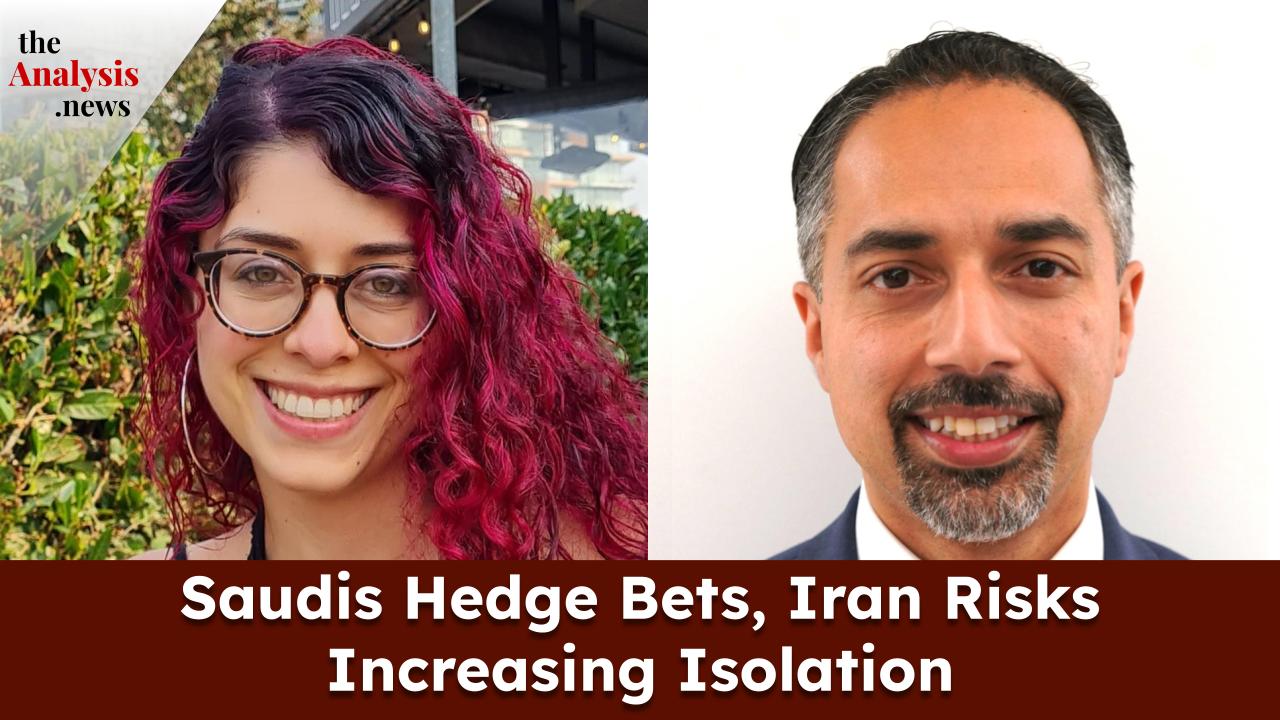
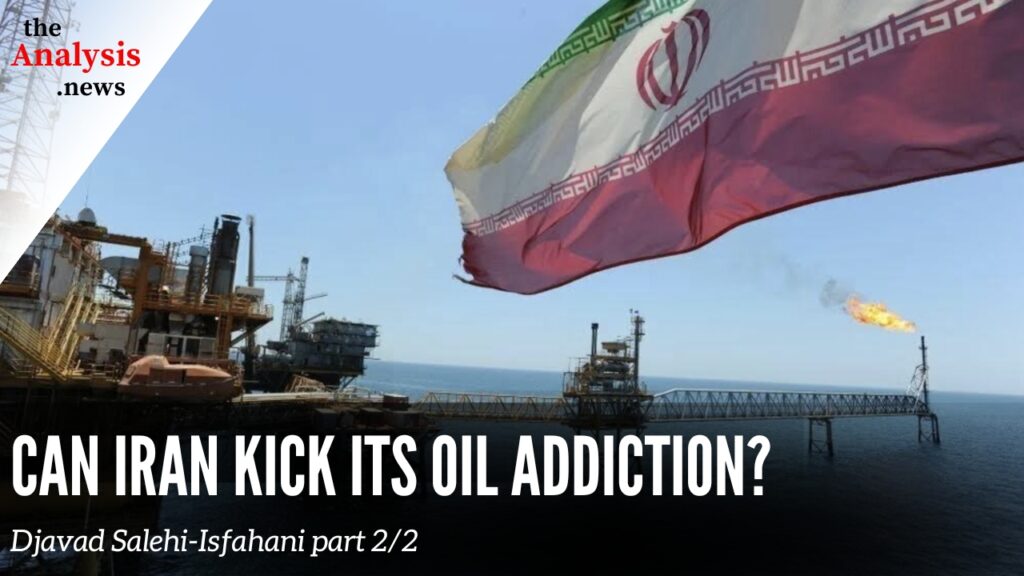
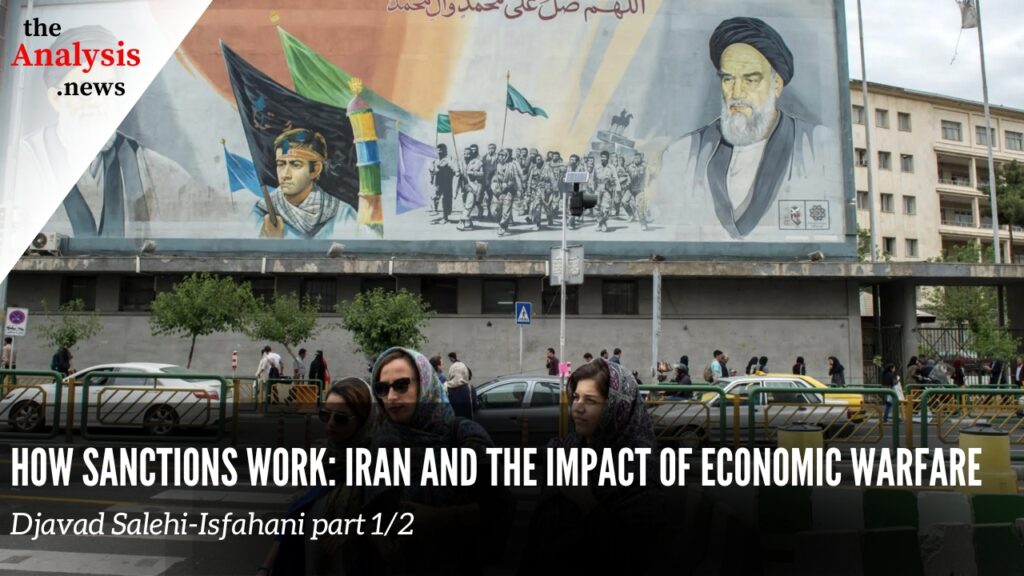
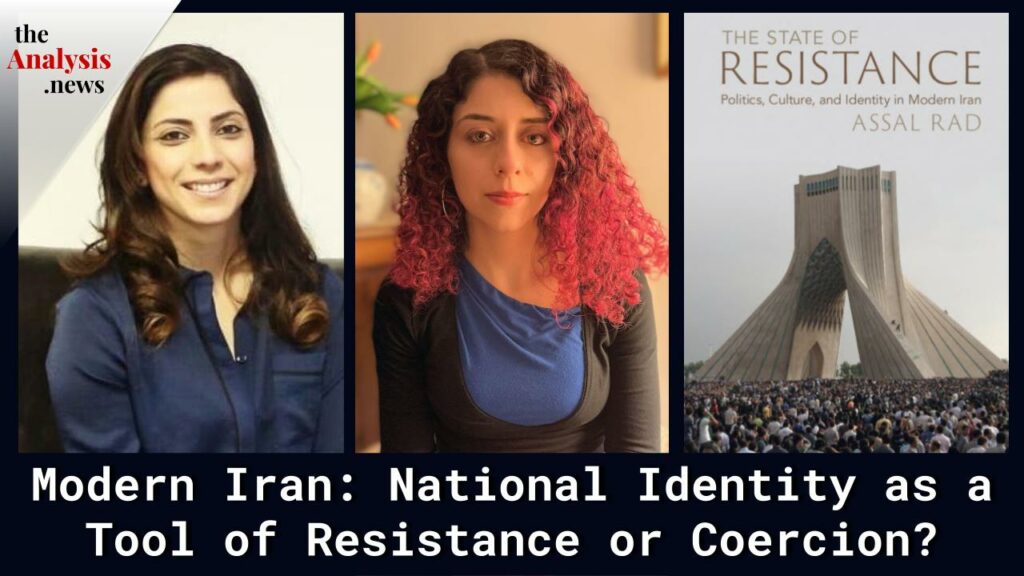
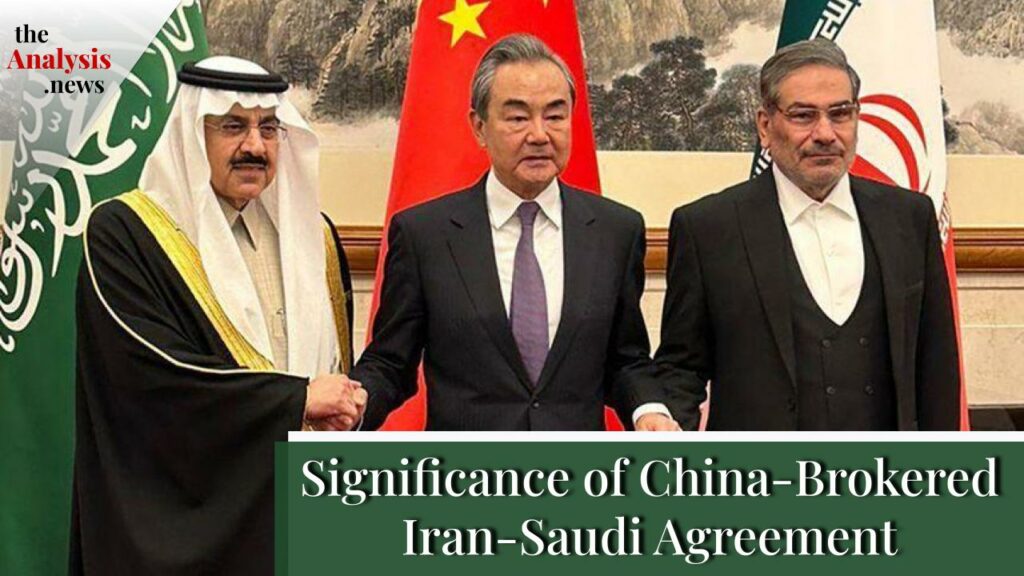

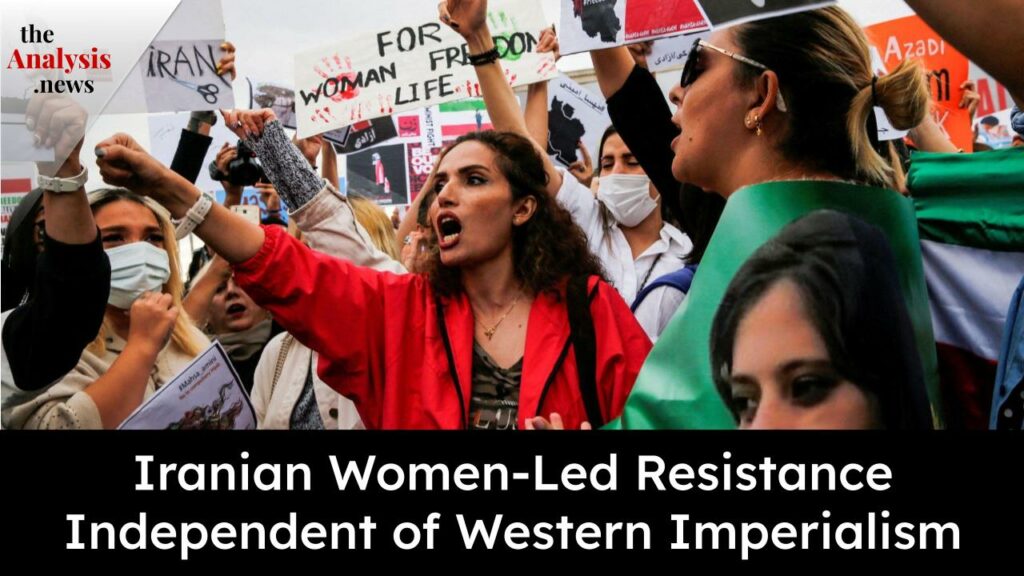
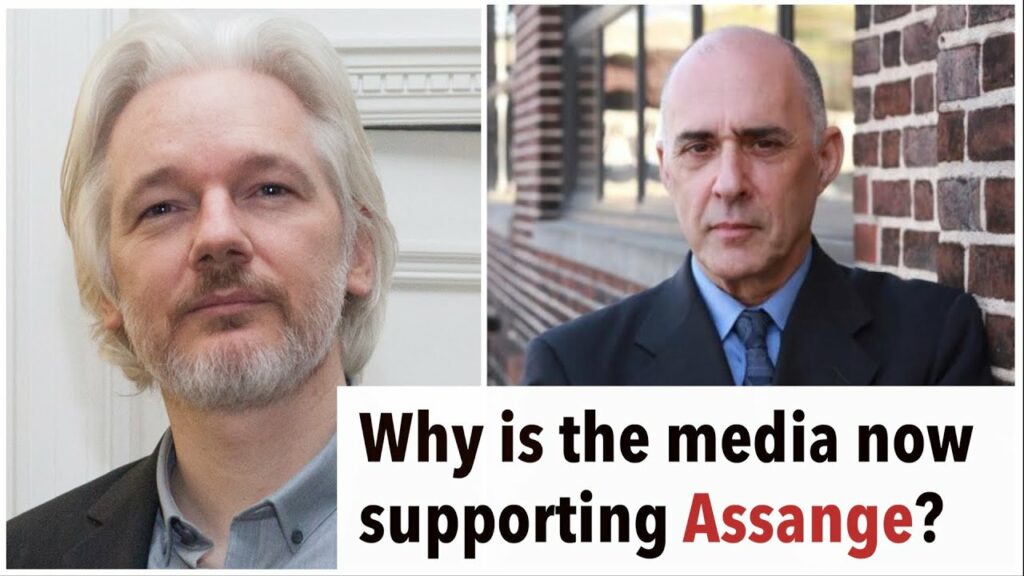

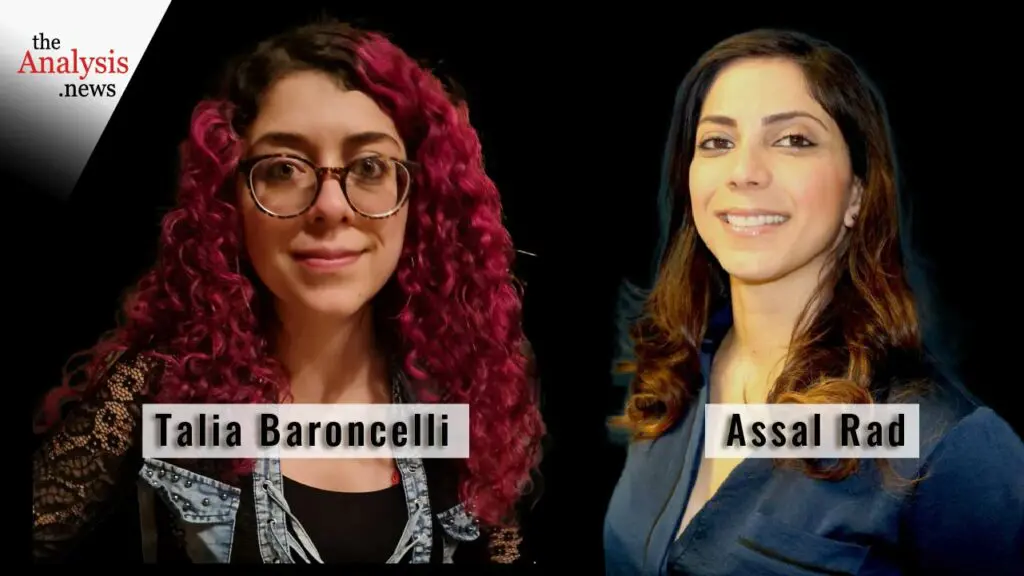
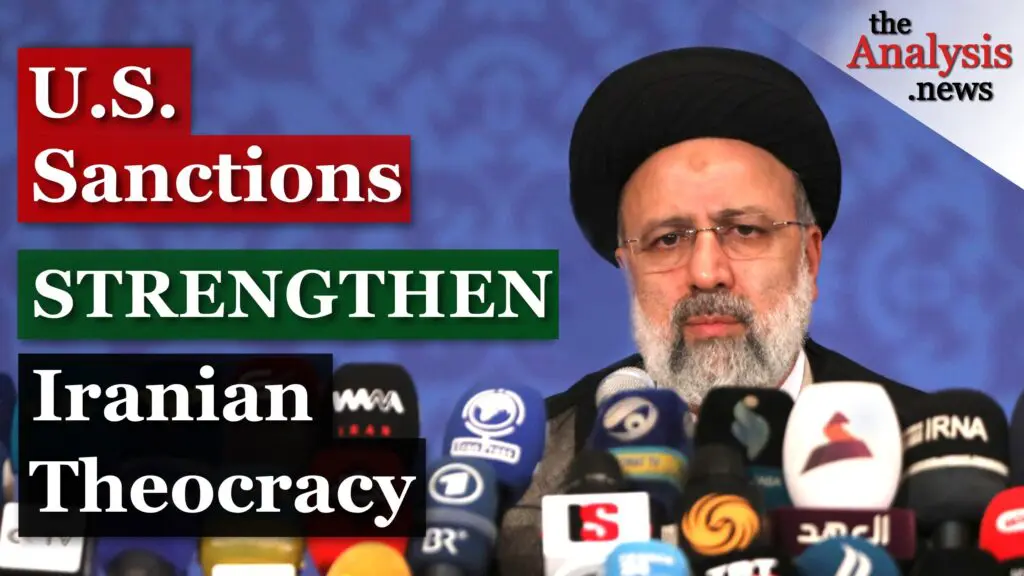
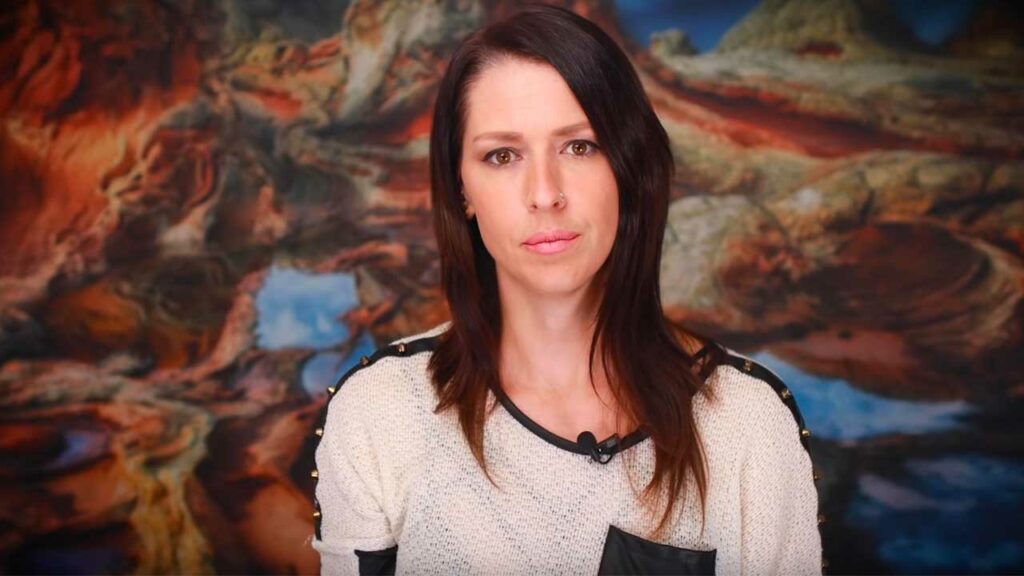
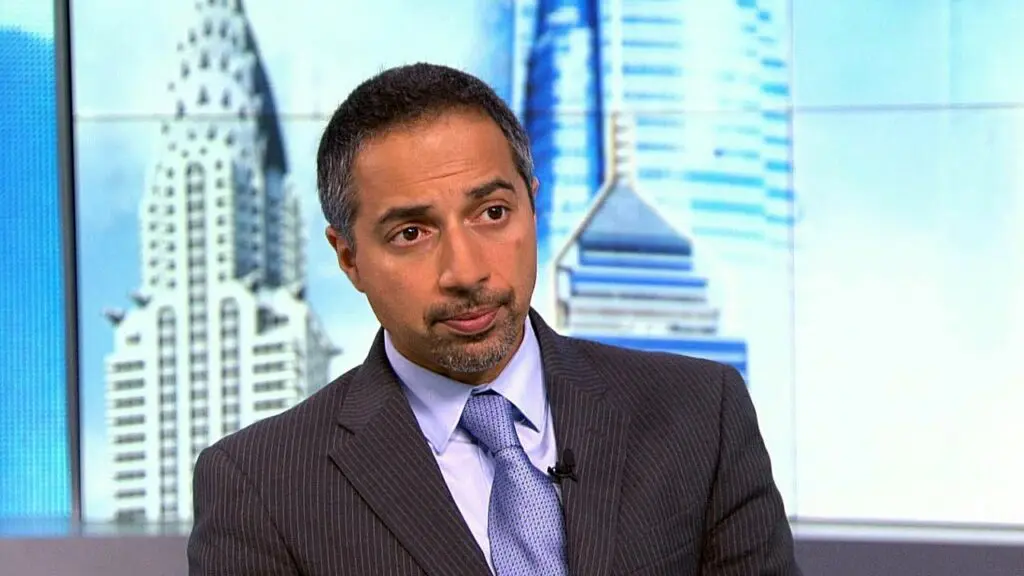
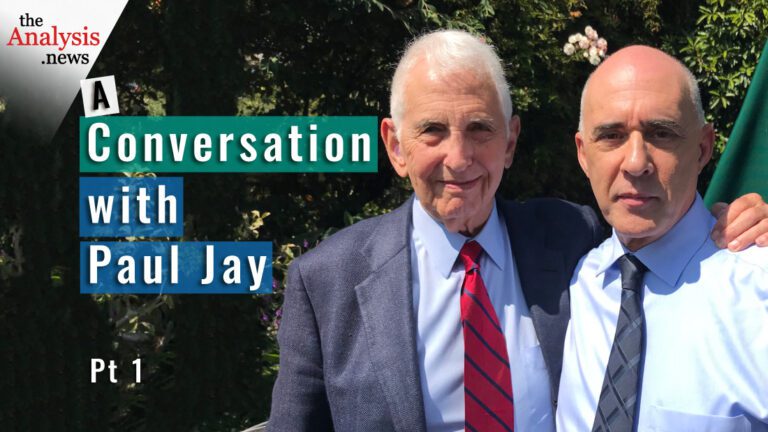



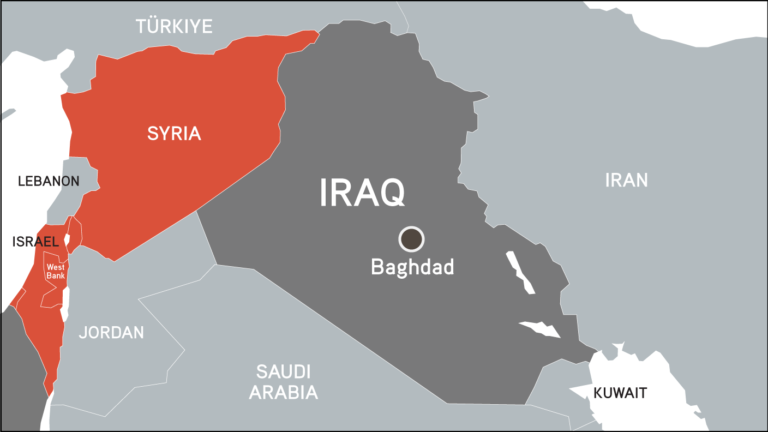
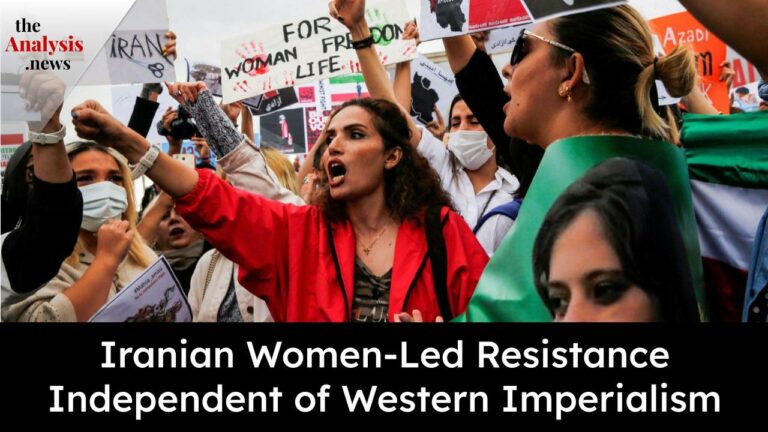
Great piece – but one thing I have come to believe about a lot of these conflicts is that a lot of stuff is actually personal, revenge for insults, wounding of pride, etc. blows to the ego – I know that seems a bit too simple and a bit too dismissive to “reduce” this stuff to personal pique – but if these folks weren’t the leaders of countries., their actions would, I think, be rather more obvious as being precisely that – “Make me a Pariah, eh, well I’ll show you! Take that, and that!” Re Assange, “Reveal what a schmuck I am, so I don’t get my rightful place as Pres., I’ll show you! Take this and this!” Trump, “I am not a loser!, I’ll show you!” If one thinks about it a bit, and does give it a knee-jerk dismissal, I think one might see a truth in it …
This is what it looks like to me, if one can ignore for a moment the trappings of power – the problem is that these enormous egos have so much power …
When great money and power are given to great egos – watch out …
SH, I only just saw this remark today. I agree with your remark to this extent; The H-Bomb is not the color of its paint, or the grafitti written on it. The lipstick is not the pig. The Masters will let one if their petulant children personalize matters to a limited extent . But let Hillary or the Donald try to change the flight plan of the weapon………
Did Trump get to actually improve U. S.-Russia relations?